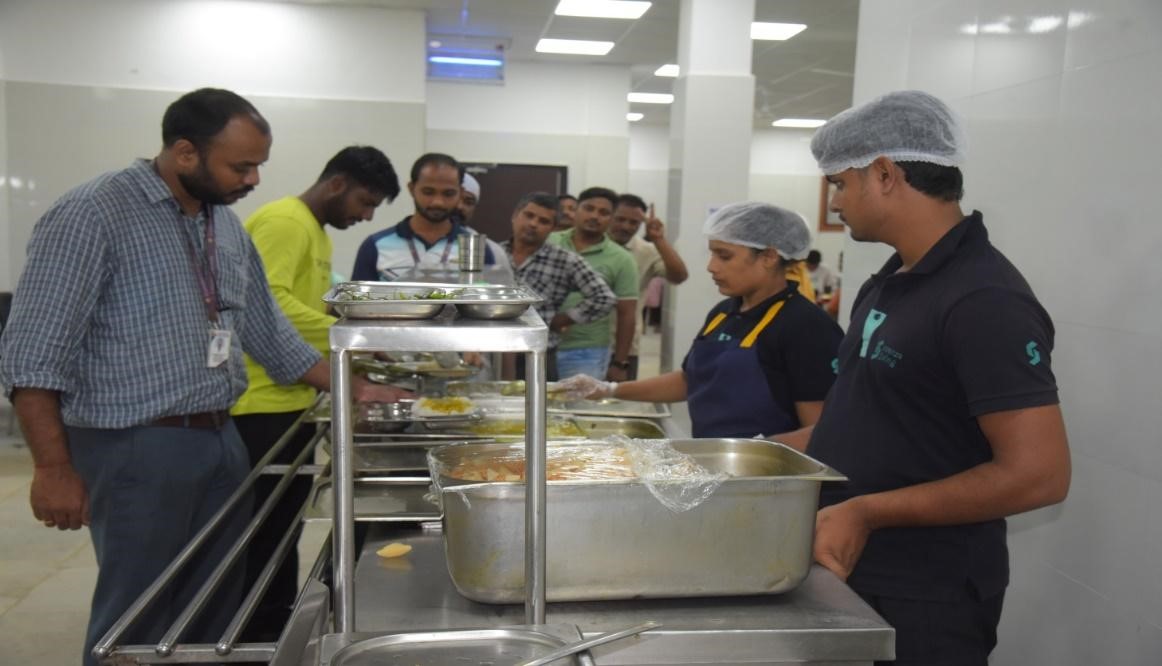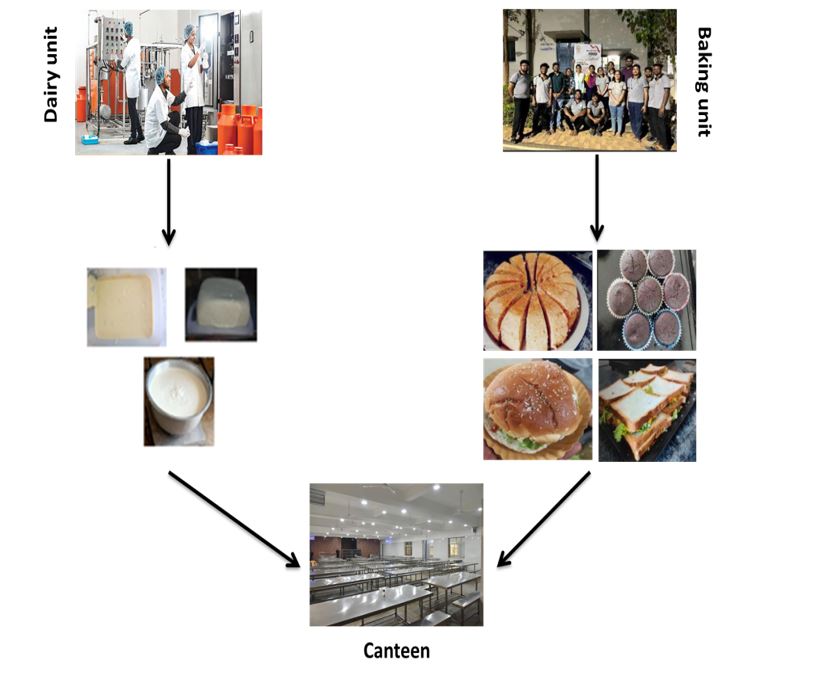Students’ Food Security and Hunger
Centurion University is committed to providing extensive support to students from low-income households, including both local and international students. Through scholarships, reduced admission fees, and financial assistance, the University ensures that these students have access to quality education, accommodation, and food. Of the 298 international students currently enrolled in the School of Maritime Studies, 30 belong to low-income households, earning less than 20% of their respective country’s average household income. These students receive 100% financial support covering tuition, hostel, and mess fees, alongside full access to the university’s facilities, such as the digital library, sports clubs, and cultural activities.
The University also ensures equitable treatment for both international and Indian students, particularly in terms of food security. The university designs its mess menu based on the caloric requirements of different cultural backgrounds, providing balanced, nutritious meals that meet the needs of all students.
Food Menu and Nutrition Planning
The University has implemented a diverse menu that accommodates both Indian and international students while meeting nutritional guidelines established by the Indian Council of Medical Research (ICMR). The daily meal plan ensures that students receive a variety of grains, legumes, fruits, vegetables, dairy, and meat products. Here is a snapshot of the weekly food schedule:
| Day | Breakfast | Lunch | Snacks | Dinner |
| Monday | Puri, Upama, Alu Matar Curry | Rice, Dal, Cauliflower Curry, Alu Bharta, Dahi (Sugar) | Alu chop | Rice, Dal, Roti, Bottle Gourd Chana Dal Curry, Kheer |
| Tuesday | Idli, Bara, Alu Matar Curry, Chutney | Rice, Dal, Besan Pokodi Curry, Veg Fry | Golgappa | Fried Rice, Dal Fry, Alu Kabuli Chana Masala, Mix Veg, Pickle |
| Wednesday | Puri, Semiya Upama, Alu Matar Curry | Rice, Dal, Alu Goji Chana Curry, Veg Chips | Dal Vada with Mint Chutney | Rice, Dal, Roti, Chicken Masala (Non-Veg), Paneer Masala (Veg) |
| Thursday | Bread Chop, Upama, Alu Dum Curry | Rice, Dal, Alu Brinjal Besara, Dahi (Sugar) | Pakora with Matar Curry | Rice, Dal, Roti, Mix Tadka, Gulab Jamun |
| Friday | Bara, Idli, Matar Curry, Chutney | Rice, Dal, Cauliflower Curry, Onion Cucumber Carrot Salad | Veg Cutlet with Sweet Chutney | Rice, Dal, Roti, Egg Masala (Non-Veg), Manchurian (Veg) |
| Saturday | Puri, Masala Upama, Kabuli Chana Curry | Rice, Dal, Mix Veg Ghanto, Veg Chips | Paw Bhaji | Rice, Dal, Roti, Cauliflower Chilli, Custard/Bundi |
| Sunday | Chakuli, Idli, Sambar, Chutney | Rice, Dal, Dalma, Veg Fry, Pickle | Stuffed Simla Mirch | Fried Rice, Kachumbar, Chicken Butter Masala (Non-Veg), Paneer Butter Masala (Veg), Papad |
Food Menu for Students
Supporting Food Security and Career Aspirations
Despite global progress, over 790 million people still suffer from hunger and malnutrition. The University is committed to finding sustainable solutions to these challenges. The university promotes food security not just for its students and staff but also for the surrounding communities. Through initiatives like Krishi Melas (agriculture fairs), the University provides small-scale farmers with training in sustainable agricultural practices. This helps farmers increase their productivity and income by giving them equal access to land, technology, and markets.

In collaboration with the Deen Dayal Upadhyaya Grameen Kaushalya Yojana (DDU-GKY) under the Ministry of Rural Development, the University is helping to diversify the incomes of rural, low-income families. This program equips rural youth with the skills needed for agricultural success while promoting entrepreneurship both within university campuses and in rural communities.
Caloric Matrix and Waste Management
Caloric Requirements and Nutritional Planning Based on ICMR Guidelines
The university ensures that all meals provided meet the caloric needs of its diverse student body, following the caloric recommendations from ICMR. The average male student requires 2,500 KJ/day, while the average female student requires 2,000 KJ/day. The University includes a balanced mix of grains, legumes, vegetables, fruits, and dairy products in its menu to ensure a well-rounded nutritional intake. Edible oils and animal-based products are used in moderation, and processed foods high in salt, sugar, and fats are limited. Additionally, the University provides students with snacks rich in micronutrients, such as ragi laddoos, ragi biscuits, and ragi cakes made with jaggery, as well as fermented foods like curd and yoghurt. Fresh fruit juices, such as pomegranate, apple, and mango, are also available at nominal prices in the university’s juice shop. These measures help promote positive health outcomes and contribute to the fight against malnutrition.
Waste Management and Sustainability
The University is dedicated to minimising food waste on campus. The university employs bio-digesters to convert food waste into compost, which is then used to enrich soil and support sustainable agricultural practices. The composting program has reduced the environmental impact of food waste and provided valuable nutrients for university gardens and local farmers.
Surplus food is either donated to local communities or used to feed animals, ensuring that no resources are wasted. This comprehensive approach to waste management not only supports environmental sustainability but also contributes to food security for vulnerable populations.

The University’s commitment is reflected in its extensive efforts to promote food security, support small-scale farmers, and ensure the well-being of its students. Through sustainable practices, nutritional planning, and community outreach, the university is playing a pivotal role in creating a healthier, more sustainable future for all.
